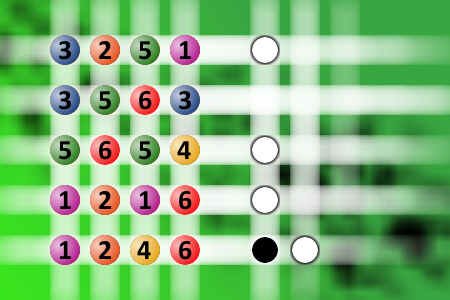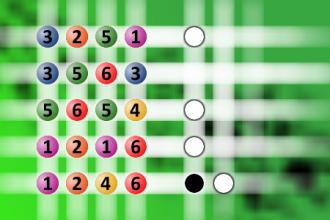What a winning combination?
The computer chose a secret code (sequence of 4 digits from 1 to 6). Your goal is to find that code. Black circles indicate the number of hits on the right spot. White circles indicate the number of hits on the wrong spot.Correct answers: 70
The first user who solved this task is Djordje Timotijevic.
#brainteasers #mastermind

Little Johnny and his father w...
Little Johnny and his father were walking in the park. They saw two dogs having sex. Little Johnny asks, "What are they doing, dad?"
Dad replies, "They're making puppies."
Later that evening little Johnny walks into his parents bedroom and they are having sex. He asks, "What are you doing?"
Dad replies, "We're making a baby."
Little Johnny replies, "Well, can you turn her over? I want puppies."
Dad replies, "They're making puppies."
Later that evening little Johnny walks into his parents bedroom and they are having sex. He asks, "What are you doing?"
Dad replies, "We're making a baby."
Little Johnny replies, "Well, can you turn her over? I want puppies."

